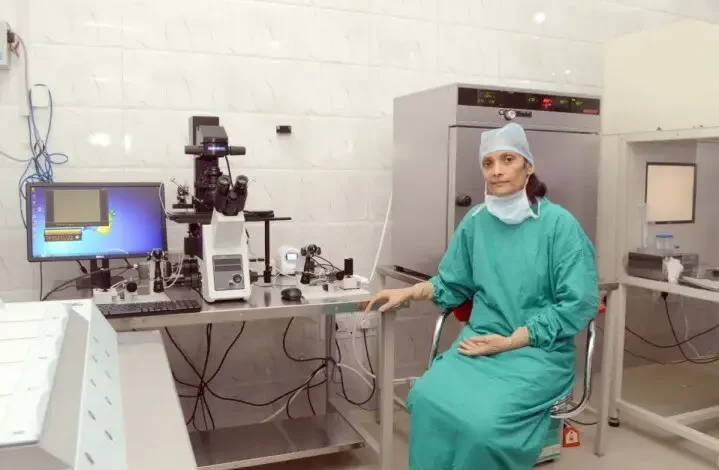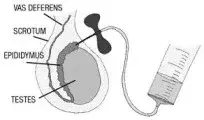
Menopause, a natural transition in a woman’s life, can often be accompanied by a range of symptoms that can significantly impact daily life. From hot flashes and night sweats to mood swings and vaginal dryness, these symptoms can be both uncomfortable and disruptive. However, with the right understanding and management strategies, menopause can be a smooth and empowering phase. In this blog, Dr. Rashmi Prasad, a renowned gynecologist and Director of the Best IVF Center in Patna will explore the common symptoms of menopause and provide practical tips to help you navigate this transition with ease.
Understanding Menopause
Menopause marks the end of a woman’s menstrual cycle. It occurs when the ovaries cease to produce eggs and estrogen, a hormone essential for reproductive function. The average age of menopause is around 51, but it can vary from person to person.
Common Symptoms of Menopause
While every woman’s experience of menopause is unique, some common symptoms include:
- Hot flashes and night sweats: These are sudden sensations of heat that can cause sweating and flushing.
- Mood swings and irritability: Hormonal changes can affect mood, leading to feelings of anxiety, depression, or irritability.
- Vaginal dryness and discomfort: Decreased estrogen levels can cause dryness and discomfort in the vagina.
- Sleep disturbances: Difficulty falling asleep, staying asleep, or waking up frequently can be common
- Joint pain and stiffness: Some women may experience joint pain and stiffness, similar to arthritis.
- Thinning hair and dry skin: Reduced estrogen levels can affect hair and skin health.
- Loss of libido: Decreased sex drive is a common symptom of menopause.
Managing Menopause Symptoms
While there’s no cure for menopause, there are several strategies to help manage its symptoms:
Lifestyle changes:
- Healthy diet: Eating a balanced diet rich in fruits, vegetables, whole grains, and lean protein can help support overall health and well-being.
- Regular exercise: Physical activity can improve mood, reduce stress, and help manage weight, which can be beneficial for menopausal symptoms.
- Stress management: Techniques such as meditation, yoga, or deep breathing can help reduce stress and anxiety.
- Sufficient sleep: Aim for 7-9 hours of quality sleep each night.
Hormone therapy:
Hormone therapy (HT) can be a helpful option for managing menopausal symptoms, especially hot flashes and night sweats. However, it’s important to discuss the risks and benefits with your healthcare provider.
Alternative therapies:
Some women find relief from menopausal symptoms through alternative therapies such as acupuncture, herbal remedies, or cognitive-behavioral therapy.
Pelvic floor exercises:
Kegel exercises can help strengthen the pelvic floor muscles and improve vaginal health.
Embracing Menopause
Menopause is a natural phase of life that should be embraced rather than feared. By knowing what to expect and taking the right steps, you can handle menopause with ease and grace. Remember, you’re not alone in this journey. There are lots of resources and people who can help you. Don’t be afraid to ask your doctor for advice.
Here are some extra tips to help you manage menopause:
- Stay hydrated: Drinking plenty of water can help alleviate some menopausal symptoms, such as hot flashes and vaginal dryness.
- Dress in layers: This can help you adjust to temperature fluctuations during hot flashes
- Lubricate: Using a water-based lubricant can help with vaginal dryness and discomfort during intercourse.
- Connect with others: Talking to friends, family, or support groups can help you feel less isolated and cope with the challenges of menopause.
Conclusion
Menopause is a natural part of aging, like wrinkles or gray hair. It can be a bit tough, but there are ways to make it easier. By taking good care of yourself, talking to your doctor about your options, and getting help from others, you can get through menopause and still feel great. Remember, you’re not alone in this, and menopause is a normal part of life. Embrace this new chapter with confidence and focus on your overall well-being.
Here’s a bit about the doctor:
Dr. Rashmi Prasad is a top gynecologist and the head of Diwya Vatsalya Mamta, a leading IVF Hospital in Bihar. She has years of experience helping women stay healthy. Dr. Prasad is passionate about making sure women feel confident and happy, especially when they’re going through menopause. She stays
up-to-date on the latest medical research and is always there for her patients, offering support and advice.





